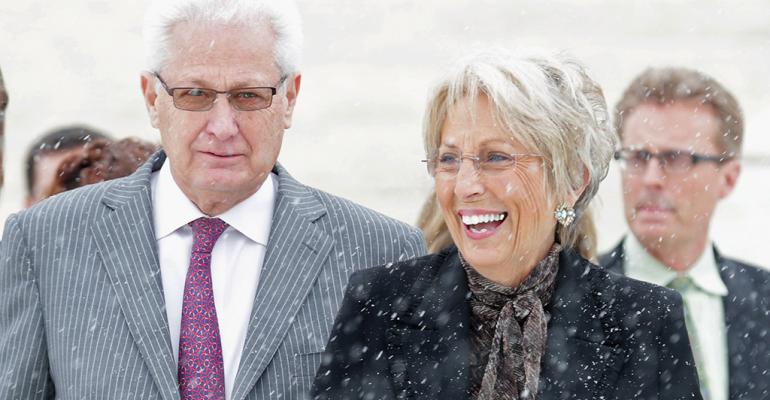In Green v. United States, Case No. CIV-13-1237-D (Feb. 10, 2016), the U.S. District Court for the Western District of Oklahoma denied the United States’ motion for summary judgment, ruling that a trust could deduct $4.75 million in cash contributions and seek a refund in addition to a $20 million refund that it already received.
The Dynasty Trust
In 1993, David and Barbara Green, as settlors, created a dynasty trust (the trust). Mart Green, the plaintiff in the instant case, was the trustee. Under the terms of the trust, Mart could make distributions to charity as he deemed appropriate; any distribution could be made so long as it met the requirements for charitable contributions under Internal Revenue Code Section 170(c).
From 2002 to 2004, the trust was a 99 percent limited partner in Hob-Lob Limited Partnership, a company that owned or operated Hobby Lobby Stores. Along with filing its income tax returns, Hob-Lob issued a Schedule K-1 (that is, a form that identifies a partner’s share of income, deductions and credits) during that time period, to the trust.
Charitable Contributions
Hob-Lob donated $1,870,204.46 in 2004 to Reach the Children Foundation, Inc. (RTCF), a qualified charity. Hob-Lob was allowed a 99 percent deduction for its cash contribution to RTCF. That same year, Hobby Lobby contributed $4.75 million cash to RTCF and another charity, Book of Hope.
Mart contends that the contributions were “inadvertently issued by Hobby-Lobby” and were actually donations made by Hob-Lob. After the companies discovered the error, they corrected them in Hobby Lobby’s books and records. They also properly accounted for them in Hob-Lob’s books and records, including its audited 2004 financial statements.
Tax Returns
In October 2005, Mart timely filed the trust’s Form 1041 income tax return for tax year 2004. On the form, he claimed a charitable deduction totaling $20,526,383. In October 2008, Mart timely filed an amended Form 1041 that increased the trust’s charitable deduction to $29,654,233 and claimed an additional tax refund of $ $3,194,748. The $29,654,233 included Hob-Lob’s $1,870,204.46 cash contribution to RTCF, and Hobby Lobby’s $4.75 million cash contribution to RTCF and Book of Hope. The Internal Revenue Service, in December 2011, issued a Notice of Disallowance regarding the refund claim.
The Instant Action
Mart brought an action before the Western District of Oklahoma, in which the court issued an order in November 2015. This instant action is for the two residual issues left on the government’s motion for summary judgment in the prior action: 1) whether the trust can deduct the $4.75 million in cash contributions issued by Hobby Lobby; and 2) whether the trust is precluded from a further tax refund beyond the $20 million it had already received.
In applying the standard of review for summary judgment, the court looked to whether there was no genuine dispute as to any material fact. The government claimed that “deductions cannot be exchanged or sold or otherwise distributed among taxpayers because the implications would allow ‘all related taxpayers [to] rewrite history and adjust their books while preparing the previous year’s tax return in order to maximize deductions and credits.’” The court, however, distinguished the cases the government relied on, which didn't involve charitable contributions and involved instances in which intentional financial decisions were made, not mistakes. In the instant case, the cash contributions were ultimately borne by Hob-Lob, even though Hobby Lobby issued the $4.75 million checks. The court thus rejected the government’s argument.
The court noted that once the companies discovered the clerical error, they sent letters of correction, signed affidavits and corrected their books. Hob-Lob also reimbursed Hobby Lobby’s account for the full $4.75 million cash contribution. The court stated:
Plaintiff is not seeking a deduction for the Trust based on a hypothetical situation … Rather, Plaintiff requests relief in accordance with corrected financial statements that reflect actual contributions made by Hob-Lob. To disallow a charitable deduction simply because of a clerical error goes against the liberal policy of encouraging charitable giving and distorts the Supreme Court’s holding in Nat’l Alfalfa Dehydrating & Milling, Co.
As such, the court denied the government’s motion for summary judgment, permitting the trust to deduct the full cash contribution and seek the additional tax refund.





